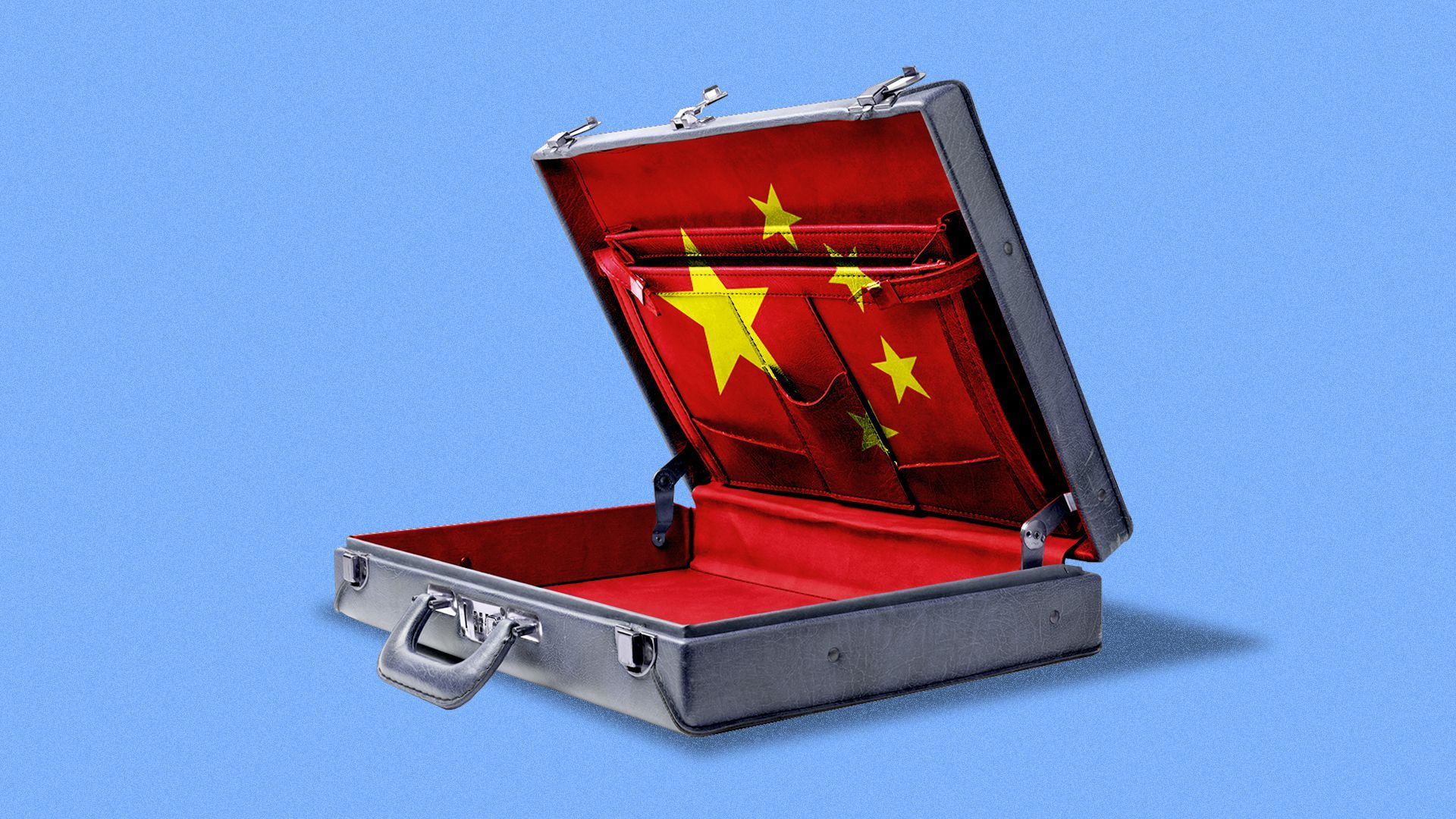Beijing draws Chinese companies even closer
Add Axios as your preferred source to
see more of our stories on Google.

Illustration: Annelise Capossela/Axios
Chinese Communist Party Secretary Xi Jinping announced last week that the party must strengthen its leadership over private companies, and that entrepreneurs must meet the party's needs.
Why it matters: Xi's new announcement will increase fears that Chinese businesses may serve as a Trojan horse for the CCP.
What's happening: On Sept. 15, the CCP's top decision-making body, the Central Committee, released a memo calling for closer ties between private Chinese businesses and the United Front Work Department, which is the CCP's bureau in charge of extending its influence and control to all corners of society.
- The guidelines say the aim is to "create a backbone team of private businesspeople who are reliable and useful at critical moments."
- On Thursday, the party also convened the first-ever conference on strengthening ties between private businesses and the UFWD.
Between the lines: Under Xi, the party is seeking to establish control over the private sector in a way that maintains robust economic growth while allowing the government to implement long-term strategy and commandeer private sector resources when needed.
- In 2018, China's securities regulator issued a guideline requiring listed companies to include in their articles of association a section about the party's role.
- The party aims to accomplish not just economic goals but also political and national security goals.
- “Xi has clearly given a strong push to the United Front system to do more and be bolder,” said Alex Joske, a China analyst at the Australian Strategic Policy Institute who has written extensively about the department.
The big picture: U.S. concerns over TikTok are based in part on the suspicion that private Chinese businesses aren't able to fend off Chinese government demands for data or other assistance.
- Chinese law states that companies and individuals are required to hand over data and provide assistance to the government and its intelligence agencies upon request, and that they must keep any such requests a secret.
- The new memo adds in a strong political element, suggesting some companies may now be required to assist in political goals and activities — though the specifics remain unclear.
What to watch: While this measure is directed primarily at Chinese businesses, the policy could spill over beyond its borders, since many Chinese businesses have partners, customers, or operations abroad.
- The Chinese government already pressures companies to act in concert with official diplomatic and foreign policy goals.
- Chinese companies have canceled contracts with foreign companies when their governments have acted against Beijing's wishes, such as earlier this month when a Chinese company suspended a $23.8 million order from Czech piano company Klaviry Petrof after a Czech government official visited Taiwan.
- Chinese companies have also pulled ads from foreign news outlets that publish content Beijing doesn't like.
Go deeper:
